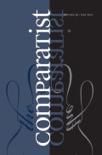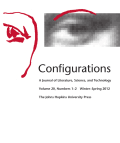
Humanities-Basel
Scope & Guideline
Empowering Voices in the Humanities Landscape
Introduction
Aims and Scopes
- Interdisciplinary Analysis of Literature and Art:
The journal emphasizes the intersection of literature, visual arts, and performance, exploring how these mediums reflect and shape human experiences. - Focus on Social Justice and Representation:
Many articles address themes of marginalization, identity, and representation, particularly concerning gender, race, and cultural backgrounds. - Cultural Critique and Historical Contextualization:
The journal frequently contextualizes contemporary narratives within historical frameworks, offering insights into how past events inform current societal issues. - Exploration of Global Perspectives:
The journal encourages submissions that explore global narratives, particularly from underrepresented regions and cultures, fostering a more inclusive discourse. - Engagement with Theoretical Frameworks:
Papers often employ various theoretical frameworks, including postcolonialism, feminism, and eco-criticism, to analyze texts and their implications in broader societal contexts.
Trending and Emerging
- Digital Humanities and New Media:
There is a growing trend towards exploring the implications of digital technologies on literature and culture, including the impact of social media and digital storytelling. - Intersectionality in Identity Studies:
The journal is increasingly focused on intersectional analyses that consider the complexities of identity, including race, gender, sexuality, and disability. - Environmental Humanities:
Emerging themes around environmental issues and sustainability are being highlighted, reflecting a growing concern for ecological crises and their representation in literature and art. - Refugee and Migration Narratives:
The journal is seeing an increase in submissions that focus on the experiences of refugees and migrants, highlighting the cultural and social implications of displacement. - Affective Turn in Humanities:
There is a trend towards exploring emotional responses and affective experiences within literary and cultural texts, emphasizing how narratives shape and reflect human emotions.
Declining or Waning
- Traditional Canonical Literature:
There is a noticeable decrease in studies focused solely on traditional canonical texts. The journal has shifted towards more contemporary and diverse narratives. - Static Historical Analysis:
Papers that treat historical texts without dynamic engagement or relevance to contemporary issues are becoming less frequent, as the journal seeks to bridge historical and modern contexts. - Conventional Literary Criticism:
The journal is moving away from conventional literary criticism that lacks interdisciplinary approaches, favoring analyses that incorporate cultural studies, sociology, and other fields. - Eurocentric Perspectives:
There is a declining focus on Eurocentric narratives, as the journal increasingly embraces global perspectives and voices from the Global South. - Narrowly Defined Genres:
Submissions that adhere strictly to traditional genre definitions are waning, as the journal promotes explorative and hybrid forms of storytelling.
Similar Journals

Comparatist
Connecting Diverse Voices in Critical TheoryComparatist is a distinguished journal published by the University of North Carolina Press, focusing on the interdisciplinary exploration of comparative literature, culture, and critical theory. With its ISSN 0195-7678 and E-ISSN 1559-0887, this journal serves as an essential platform for scholars and practitioners to engage with diverse literary traditions and foster dialogues across cultural boundaries. Targeted at researchers, professionals, and students, Comparatist publishes original research articles, critical essays, and theoretical perspectives that contribute significantly to the understanding of comparative studies in literature. The journal is committed to advancing the field by offering fresh insights and fostering intellectual exchange among a global audience. Although it currently does not offer Open Access options, Comparatist maintains a robust reputation within its discipline, making it an invaluable resource for those seeking to deepen their understanding of comparative methodologies and literary discourse.

452 F-Revista de Teoria de la Literatura y Literatura Comparada
Unlocking the potential of literary theory and comparative analysis.452 F-Revista de Teoria de la Literatura y Literatura Comparada is a prestigious academic journal published by the Universitat de Barcelona, Faculty of Philology, dedicated to advancing the field of literature and literary theory. With an E-ISSN of 2013-3294, this Open Access journal has been freely accessible since 2009, ensuring widespread dissemination of knowledge across the global literary community. Recognized for its scholarly contributions, it attained a Q2 ranking in the Literature and Literary Theory category as of 2023, placing it in the top tier of publications in its field. The journal covers a broad spectrum of topics within literary theory and comparative literature, inviting submissions from emerging and established scholars alike. Based in Barcelona, Spain, the journal bridges cultural and academic dialogues, positioning itself as an essential resource for researchers, professionals, and students aiming to deepen their understanding of contemporary literary dynamics.

Versus-Quaderni di Studi Semiotici
Challenging Paradigms Through Semiotic InquiryVersus-Quaderni di Studi Semiotici, published by SOC ED IL MULINO, is a distinguished scholarly journal based in Italy, focusing on the interdisciplinary fields of semiotics, linguistics, and philosophy. With its ISSN 0393-8255 and E-ISSN matching, the journal has gained recognition for its rigorous academic contributions, achieving notable rankings in the 2023 category quartiles, including Q2 in both Linguistics and Language as well as Philosophy, and Q4 in Applied Psychology. With an aim to foster innovative discourse and critical analysis, Versus serves as an invaluable resource for researchers, professionals, and students alike, facilitating an exchange of ideas that challenge conventional paradigms across these interconnected disciplines. Despite its lack of open access, the journal's singular commitment to intellectual rigor and its pivotal role in shaping semiotic studies make it a key player in the academic landscape. The publication period converges from 2019 to 2024, ensuring that its readers remain at the forefront of contemporary semiotic inquiry.

YALE FRENCH STUDIES
Cultivating a Deeper Understanding of French Cultural ContextsYale French Studies is a prominent academic journal published by Yale University Press in the United States, dedicated to advancing the discourse on Francophone literature, culture, and thought. With an ISSN of 0044-0078, this journal serves as a vital platform for interdisciplinary scholarship, encompassing areas such as cultural studies, history, and sociology. Although it operates under a traditional subscription model, its contributions are significant, particularly between the converged years spanning 2002 to 2014, 2018 to 2019, and 2021 to 2023. The journal currently holds Q4 rankings in various categories, including cultural studies and visual arts, and offers rich, scholarly insights that are crucial for researchers, professionals, and students alike. As an esteemed publication in the realm of literature and literary theory, Yale French Studies is instrumental in fostering a deeper understanding of French cultural contexts and their global implications, marking it as an essential resource for anyone engaged in Francophone studies.

Configurations
Advancing Critical Analyses Across Diverse DisciplinesConfigurations is a distinguished academic journal published by Johns Hopkins University Press, focusing on the interdisciplinary intersections of literature, philosophy, and social sciences, particularly within the field of health. Established in 1993 and continuing its contribution to scholarship through 2024, this journal provides a vital platform for researchers, professionals, and students to explore complex theoretical frameworks and cultural critiques. With an ISSN of 1063-1801 and an E-ISSN of 1080-6520, Configurations is recognized for its nuanced discussions and critical analyses, evident in its respectable rankings in various quartiles—Q3 in Literature and Literary Theory and Philosophy, alongside Q4 in Health (Social Science). The journal does not currently offer open access, which may influence how its rich content is disseminated among academia. Through its commitment to fostering innovative scholarship, Configurations continues to be an essential resource for intellectual engagement and interdisciplinary dialogue.

NEW GERMAN CRITIQUE
Advancing Innovative Perspectives on German CultureNEW GERMAN CRITIQUE is a prominent academic journal published by Duke University Press, focusing on the dynamic intersections of German studies, cultural theory, and social thought. With its ISSN 0094-033X and E-ISSN 1558-1462, this journal facilitates a critical dialogue within the Arts and Humanities and Cultural Studies fields. As a Q3-ranked journal in both categories as of 2023, it represents a significant platform for scholars exploring contemporary issues through a German lens, addressing themes of identity, memory, and cultural politics. Although NEW GERMAN CRITIQUE is not an open-access journal, it remains a crucial resource for researchers, professionals, and students interested in the evolving landscape of cultural studies, inviting contributions that foster innovative perspectives and facilitate intellectual exchange. Founded in 1988 and continuing its vital discourse into 2024, the journal is headquartered in Durham, North Carolina, and serves as a touchstone for those engaged in the complexities of modern German culture and its global implications.

COLLOQUIA GERMANICA
Advancing Scholarly Discourse in Germanic StudiesCOLLOQUIA GERMANICA, published by FRANCKE VERLAG, serves as a vital platform for the dissemination of scholarly research in the fields of linguistics, literature, and literary theory. With a rich history spanning from 2002 to 2017 and again from 2020 to 2024, this journal is indexed under ISSN 0010-1338 and is recognized within Q4 quartile rankings in both Linguistics and Language, and Literature and Literary Theory as of 2023. Although it operates primarily on a subscription basis, this journal endeavors to enhance academic discourse and promote innovative research that contributes to our understanding of Germanic languages and literature. Researchers and professionals can greatly benefit from the journal's content, given its position in Scopus with notable rankings and percentiles in various categories. COLLOQUIA GERMANICA invites submissions that offer fresh insights into the intricacies of language and literature, making it an essential read for academics and students alike.

PONTE
Enriching Academic Discourse with Diverse PerspectivesPONTE is a distinguished academic journal published by IL PONTE EDITORE, focusing on the interdisciplinary fields of Arts and Humanities as well as Social Sciences, specifically within Literature and Literary Theory and Sociology and Political Science. Despite its recent coverage discontinuation in Scopus, PONTE remains an essential platform for scholarly discourse, aiming to enrich the academic community with critical insights and diverse perspectives. Established in Italy, this journal offers a unique forum for researchers, professionals, and students to engage with contemporary issues, promote innovative research, and contribute to the evolving dialogue in the humanities and social sciences. While it does not provide Open Access options, the journal's content is pivotal for those seeking to deepen their knowledge and foster collaboration across disciplines. As the field continues to grow, PONTE's commitment to high-quality research ensures its historical significance and ongoing relevance in academic inquiry.

MEXICAN STUDIES-ESTUDIOS MEXICANOS
Pioneering Research in Mexican Cultural StudiesMEXICAN STUDIES-ESTUDIOS MEXICANOS, published by University of California Press, is a distinguished journal that explores critical issues in the fields of cultural studies and history, with a keen focus on Mexican and Latin American contexts. Established in 1985, this journal serves as an invaluable platform for researchers, professionals, and students alike, aiming to deepen understanding of Mexico's complex social, cultural, and historical landscapes. With an impressive placement in the Q2 category in both Cultural Studies and History, it ranks within the top tiers of scholarly discourse, demonstrating a strong impact factor that reflects its significance in the academic community. Although it does not currently offer Open Access, the journal remains committed to delivering high-quality, peer-reviewed research that stimulates ongoing debates and enriches scholarship in the humanities and social sciences. Nestled at the heart of scholarly conversations, MEXICAN STUDIES-ESTUDIOS MEXICANOS continues to play a pivotal role in advancing academic inquiry into Mexico's past and present.

Miranda
Fostering inclusive discourse in the humanities.Miranda (ISSN: 2108-6559, E-ISSN: 2108-6559) is a distinguished open access journal published by UNIV TOULOUSE II-JEAN JAURES, dedicated to advancing knowledge across various fields of the humanities and social sciences. Since its establishment in 2010 as an open access platform, Miranda has aimed to foster inclusive academic discourse by providing unrestricted access to high-quality research. With its commitment to accessibility and scholarly excellence, this journal serves as an essential resource for researchers, professionals, and students seeking to enrich their understanding and engage with contemporary issues within their disciplines. The journal prides itself on its rigorous peer-review process and aims to publish original research, reviews, and interdisciplinary studies that contribute to the evolving landscape of humanities and social science research. Located in Toulouse, France, Miranda is poised to make a significant impact in its field and invites contributions that reflect diverse perspectives and innovative research methodologies.